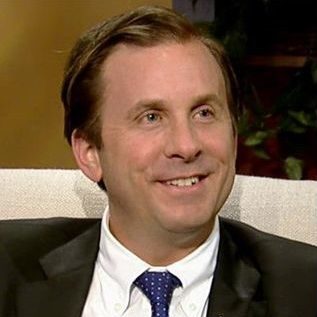A close friend who has few peers when it comes to belief in limited government has a problem: he’s not sure what news channel – if any – to watch. While the views expressed by MSNBC hosts and guests are maddeningly obtuse, he increasingly finds it difficult to turn on Fox News without similarly changing the channel in frustration.
While conservatives were properly disgusted by the $1.9 trillion coronavirus “rescue plan” signed into law by President Biden in 2021, they were rather quiet in 2020 when a $2.9 trillion Cares Act was passed. Please keep in mind that absent this massive bit of wealth redistribution, there’s no way lockdowns around the country could have lasted even two weeks, let alone many months.
Conservatives who used to cheer entrepreneurial and business success increasingly call for government to stand athwart “Big Tech” and other “Big” industry sectors. They seek government force as a way of neutering what has grown large by virtue of meeting the needs of users and customers here, and around the world.
And while conservatives have long viewed taxes as a work disincentive, or a penalty placed on work, over the last several years they’ve more and more sided with tariffs as a way of shrinking competition from outside the fifty states. Sorry, but we produce in order to consume. A tariff is a tax on our work. For conservatives who say “it’s different” when the tax is placed on foreign goods, since when do conservatives support the taking of freedom to transact; a taking meant to produce more revenue for the U.S. Treasury?
The main thing is that to watch conservative media is to more and more endure commentary and advocacy that has little to do with limited government. What to do?
Better yet, what to say? For so long, members of the Left incorrectly derided the Right for a lack of ideas, or for lacking sense. Reality intruded on their critiques. It’s no coincidence that the prosperity that’s defined the last 40 years has happened in concert with growing acceptance that free markets and limited State power are good for the individual, and by extension grand for economic growth. The Right authored this revival. If anyone doubts this, please look back to what members of the Left said about Ronald Reagan. They mocked him and his alleged simplicity until they mimicked him. Indeed, no less than Richard Reeves (a prominent historian of the Left) ultimately concluded that Bill Clinton’s presidency was Reagan’s 3rd term. We won, they lost.
Which raises an obvious question of why conservatives have in so many ways backtracked. More specifically, it begs knowing why conservative media has become so much less watchable, and so much more supportive of government (see above). The view here is that prosperity breeds flabbiness of thought, and this might explain why Fox can at times be as difficult to watch as MSNBC always is.
What’s crucial is that this could change. History says it will change. Bad ideas in a sense make it possible for good ones to emerge. Tim Baxter, a Republican candidate for Congress in New Hampshire, may be the carrier of good.
Baxter is reasonable. He doesn’t hide from the truth about government spending. It’s a tax. It’s the politicized allocation of precious resources. Which is why Baxter’s run for Congress is intriguing. In his twenties, and relatively new to politics (he’s served one term in New Hampshire’s House of Representatives), he in many ways brings a new way of thinking to his race that embraces the idea-focused conservatism of the past. Baxter is interested in reducing the government spending given his understanding that what matters is total dollars spent. The latter signals the extraction of precious resources from the private sector on the way to their politicized allocation. This spending is an economic somnolent. By definition. Baxter talks in terms of it.
On the matter of the tragic lockdowns, Baxter wants choice free of government force. He understands that the worst excuses for the lockdowns were the original ones about protecting hospitals from overflows and limiting death. Really, who among us needs to be forced to avoid behavior that could lead to hospitalization, or in the extreme, death? Baxter recognizes that individual choice is more than a virtue. It also produces crucial information that sadly wasn’t produced by stay-at-home orders that by their very description blinded people to the brutal or not-so-brutal (who knew, with people effectively sitting at home?) reality of a new virus.
Which brings us to money. Baxter wants money that’s trusted as a measure of value. Which means Baxter wants real money. The difference is that he brings none of the wacko baggage about the Fed as the source of monetary mischief that well predates the U.S. central bank, and central banks in general. Put another way, while Baxter is rightly no promoter of our central bank, he recognizes that devalued, clipped money is as old as money is, and certainly as old as money with government acting as monopoly provider.
This all speaks to his expansive view of cryptocurrencies, or better yet, private money. Baxter is cheering these monetary alternatives not out of mindless rage, but because he recognizes that money is just a value agreement that producers require in order to exchange with each other. In other words, Baxter believes that private money will lead to more trusted money, more life and wealth-enhancing trade, and best of all, more individual specialization.
In short, Baxter’s politics are those of freeing the individual from the barriers put up by politicians from both sides of the aisle.
Are there disagreements? Most definitely. In a perfect world there would be no “America First, China Last” sloganeering, and while Critical Race Theory is an execrable educational concept, the view here is that the marketplace of thought should be allowed to discredit it, not bans. Still, from talking to Baxter it’s apparent that lots of reasonable thought informs his views. Ideally this deeper thought is the beginning of a trend for the GOP.
Reposted from RealClearMarkets
Published under a Creative Commons Attribution 4.0 International License
For reprints, please set the canonical link back to the original Brownstone Institute Article and Author.









